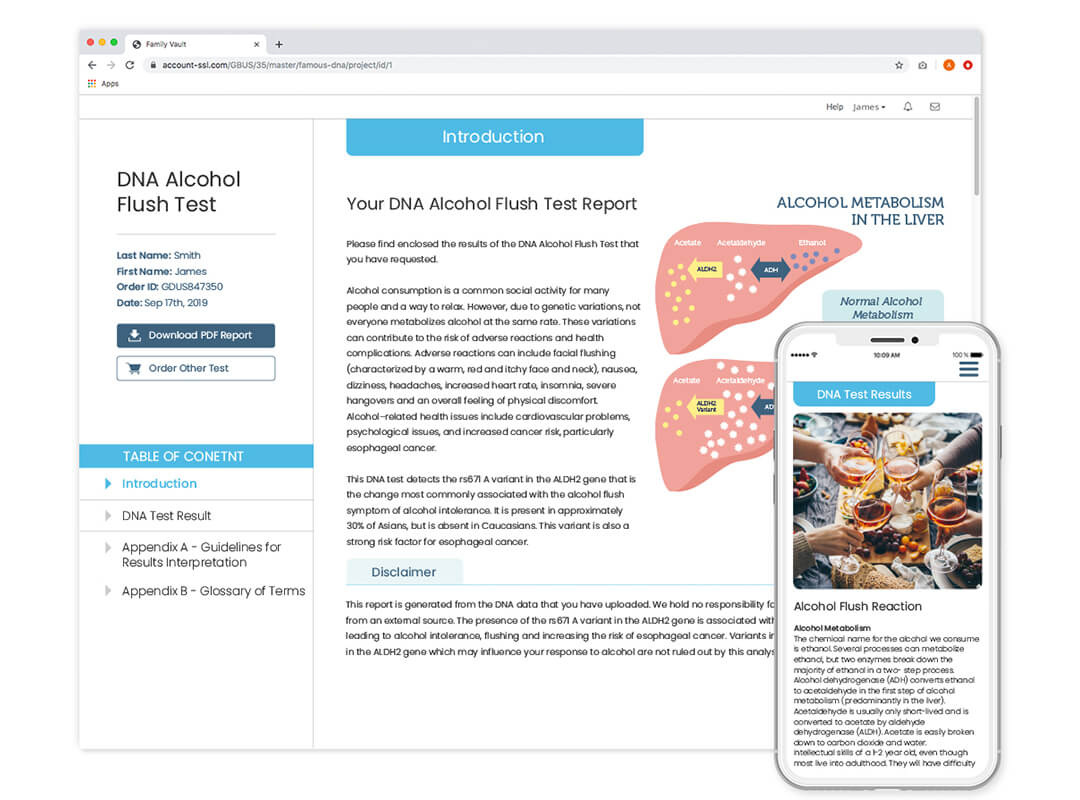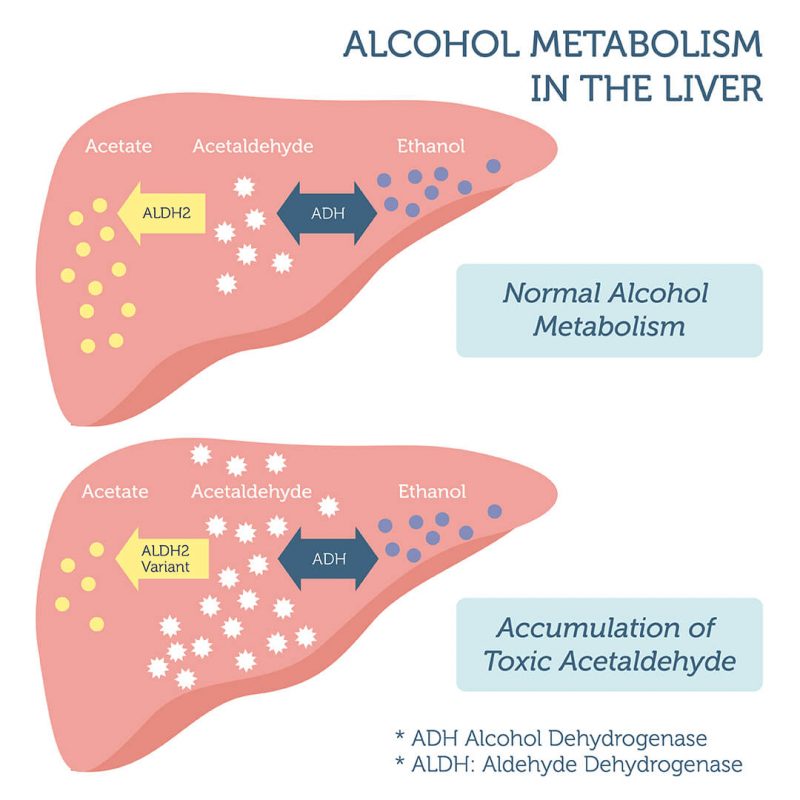Alcohol Flush DNA Test
Does your face turn red when you drink? You may be experiencing symptoms of alcohol flush. Find out your risk of alcohol flush with this DNA test.
- Includes the ALDH2 variant linked to alcohol flush
- This variant is a strong risk factor associated with esophageal cancer:
– 4x increased risk for light drinkers
– 6-10x increased risk for heavy drinkers
Already have DNA markers? Sign in and upload your data to view results.
Need to take the DNA Test? Order our easy-to-use swab kit.





